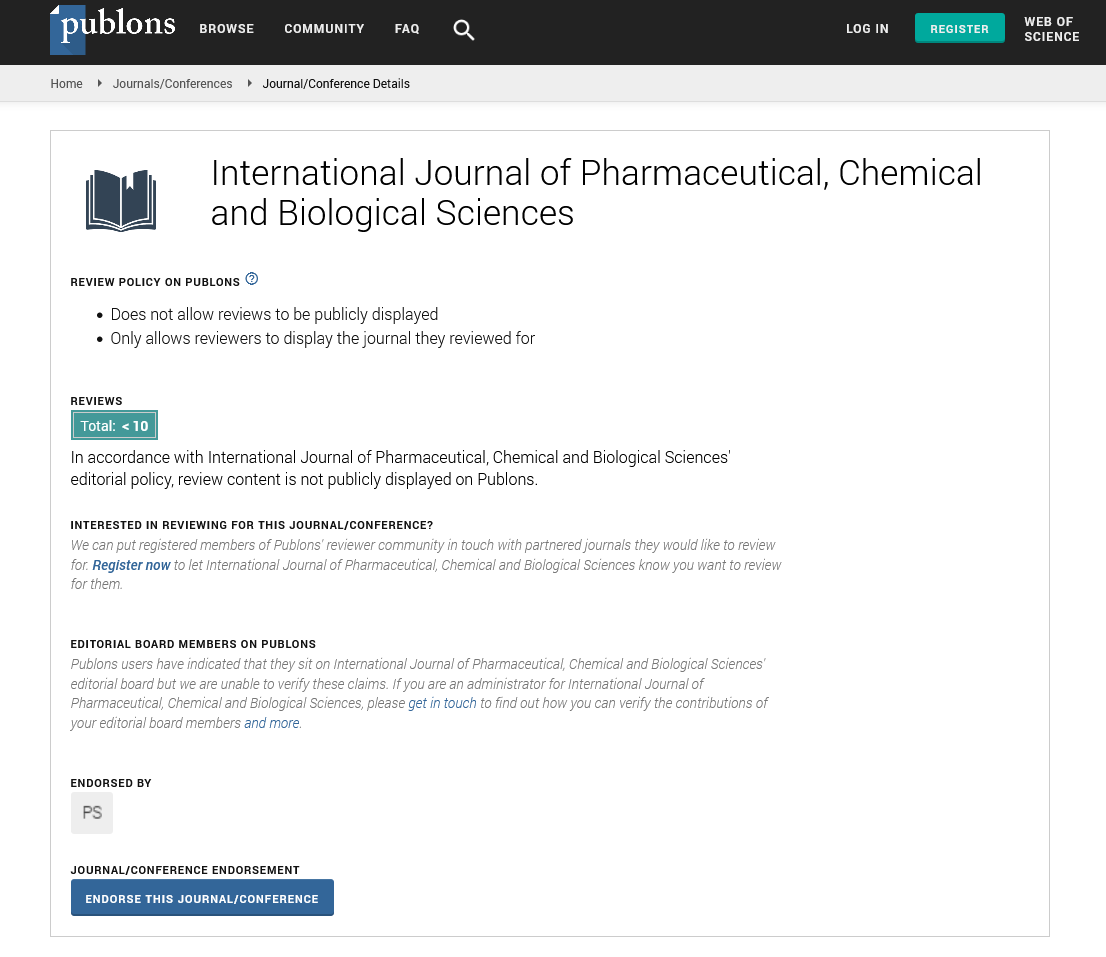Commentary - International Journal of Pharmaceutical, Chemical and Biological Sciences ( 2024) Volume 14, Issue 2
The Crucial Role of Hospital Pharmacy: Ensuring Safe and Effective Patient Care
Zichen Cho*Zichen Cho, Department of Pharmacy, Tsinghua University, China,
Received: 29-May-2024, Manuscript No. ijpcbs-24-140225; Editor assigned: 31-May-2024, Pre QC No. ijpcbs-24-140225 (PQ); Reviewed: 14-Jun-2024, QC No. ijpcbs-24-140225; Revised: 19-Jun-2024, Manuscript No. ijpcbs-24-140225 (R); Published: 26-Jun-2024, DOI: DOI: 10.36648/2471-9668-14.2.4
Description
Hospital pharmacies are a vital component of the healthcare system, ensuring that patients receive the correct medications in a timely and safe manner. These specialized pharmacies operate within hospital settings, working closely with healthcare professionals to manage and dispense medications, monitor patient outcomes, and contribute to overall patient care. As the landscape of healthcare continues to evolve, the role of hospital pharmacies becomes increasingly critical in delivering highquality care. One of the primary responsibilities of hospital pharmacies is to ensure the safety and efficacy of medications administered to patients. Hospital pharmacists are experts in pharmacology and therapeutics, playing a crucial role in selecting the most appropriate medications for individual patients. They review medication orders, check for potential drug interactions, allergies, and contraindications, and adjust dosages as necessary. This meticulous oversight helps prevent medication errors, which can have serious or even fatal consequences. Additionally, hospital pharmacists are involved in the preparation and compounding of medications. For example, they prepare sterile Intravenous (IV) solutions, ensuring that they are free from contamination and correctly dosed. This is particularly important for medications that require precise preparation, such as chemotherapy drugs or Total Parenteral Nutrition (TPN) solutions. Hospital pharmacists work as integral members of the healthcare team, collaborating with physicians, nurses, and other healthcare professionals to optimize patient care. Their expertise is especially valuable in complex cases where patients have multiple comorbidities and are taking several medications. Pharmacists provide valuable insights into drug therapy management, helping to develop and implement individualized treatment plans. Effective medication management is essential for achieving positive patient outcomes, particularly in a hospital setting where patients often have acute or severe conditions. Hospital pharmacists monitor patients’ medication regimens, ensuring that they adhere to prescribed treatments. This involves educating patients and their families about the importance of medication adherence, potential side effects, and the proper administration of medications. The role of hospital pharmacies is continuously evolving, driven by advances in technology and changes in healthcare delivery. One of the significant innovations in hospital pharmacy practice is the implementation of automated dispensing systems. These systems enhance the accuracy and efficiency of medication dispensing, reduce the risk of errors, and free up pharmacists to focus on clinical duties. Despite their critical role, hospital pharmacies face several challenges. One major challenge is the increasing complexity of medications and treatment protocols. With the advent of personalized medicine and biopharmaceuticals, hospital pharmacists must stay updated on the latest developments and integrate new therapies into practice safely. Another challenge is the need for effective medication management systems to handle the growing volume of medications and patients. This requires robust Information Technology (IT) infrastructure and continuous training for pharmacy staff to ensure they can navigate and utilize these systems effectively. Through collaboration, meticulous management, and continuous innovation, hospital pharmacists contribute significantly to patient care and outcomes. As healthcare continues to evolve, the role of hospital pharmacies will become even more critical, requiring ongoing adaptation and dedication to meet the challenges and opportunities of modern medicine.
Acknowledgement
None.
Conflict Of Interest
None.

